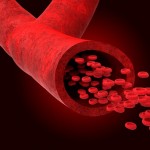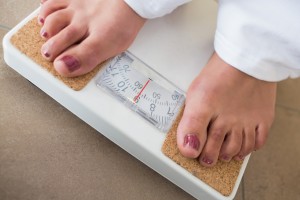Iron-rich foods for your daily diet
 A healthy body requires a few essential things: Food, water and minerals. Essential minerals come in two forms, major and trace. Major minerals consist of calcium, potassium, sodium, sulfur, phosphate, chloride and magnesium. These minerals play a role in the workings on the human body. Equally as important are trace minerals, which are iron, zinc, copper, iodine, selenium, manganese, fluoride, chromium and molybdenum. These, too, all play an important role in the workings of the human body.
A healthy body requires a few essential things: Food, water and minerals. Essential minerals come in two forms, major and trace. Major minerals consist of calcium, potassium, sodium, sulfur, phosphate, chloride and magnesium. These minerals play a role in the workings on the human body. Equally as important are trace minerals, which are iron, zinc, copper, iodine, selenium, manganese, fluoride, chromium and molybdenum. These, too, all play an important role in the workings of the human body.
We get many of these trace minerals from food, in particular iron. Iron is responsible for carrying oxygen to all parts of the body using red blood cells. Low iron can result in tiredness and irritability. It is important then to ensure your iron levels are well-supported, which can easily be done through diet.
Health benefits of iron
Aside from carrying oxygen around the body, iron’s health benefits include:
- Maintaining muscle function
- Supporting brain health
- Forming hemoglobin
- Preventing restless leg syndrome
- Regulating body temperature
- Preventing anemia – iron deficiency
- Helping with treatment of chronic disorders like renal failure anemia
- Helping take part in synthesis of essential neurotransmitters – dopamine, norepinephrine, and serotonin
- Preventing and combating fatigue
- Boosting immune system
- Treating insomnia
- Boosting concentration.
Iron deficiency
 A real concern is a deficiency of iron as it can reduce quality of health. Iron deficiency is categorized by low levels of iron. To determine anemia, doctors will conduct blood work and look for numbers associated with hematocrit and hemoglobin.
A real concern is a deficiency of iron as it can reduce quality of health. Iron deficiency is categorized by low levels of iron. To determine anemia, doctors will conduct blood work and look for numbers associated with hematocrit and hemoglobin.
Hematocrit is the percentage of blood volume made up of red blood cells. A healthy range is 24.9 percent to 44.5 percent in women and 38.8 percent to 50 percent for men. Hemoglobin’s normal ranges are 135 to 17.5 g/dL in men and 12 to 15.5 g/dL in women.
Ferritin, which is a protein that helps store iron in the body, must be examined as well. If ferritin levels are low, it could point to a disorder.
Causes of iron deficiency include blood loss, a diet that lacks iron, an inability to absorb iron (may be a result of a bowel disorder) or pregnancy.
Symptoms of iron deficiency include:
- Craving for ice
- Extreme fatigue
- Pale skin
- Weakness
- Shortness of breath
- Chest pain
- Frequent infections
- Headaches
- Dizziness
- Cold hands and feet
- Inflammation or soreness of the tongue
- Brittle nails
- Rapid heartbeat
- Poor appetite
- Tingling or crawling in legs (restless leg syndrome).
Treatment for iron deficiency is to boost your iron intake. How low your levels are will determine treatment. Doctors may prescribe iron supplements. The best way to prevent iron deficiency then is to consume iron-rich foods.
Top iron rich foods
Because iron is an essential trace mineral it’s important to keep your levels adequate to remain healthy and prevent anemia. Below is a chart containing top iron-rich foods. Food sources are the best way to receive iron as it will easily get absorbed into your body.
Firstly it’s important to know how much iron you should aim to consume. The recommended servings of iron according to the Dieticians of Canada are:
It’s important to vegetarians that they require nearly double the recommended amount because their main source of iron is plant-based. Typically red meat contains high amounts of iron, this presents a problem for vegetarians. Vegetable- and fruit-based iron is not as easily absorbed in comparison to meat-based iron.
Here is a list of food sources for iron, according to the American Red Cross:
Lamb
Ham
Turkey
Chicken
Veal
Pork
Dried beef
Liver
Liverwurst
Egg Shrimp
Scallops
Clams
Oysters
Tuna
Sardines
Haddock
Mackerel Spinach
Sweet potatoes
Peas
Broccoli
String beans
Beet greens
Dandelion greens
Kale
Collards
Chard Enriched white bread
Whole wheat bread
Enriched pasta
Wheat products
Bran
Corn meal
Oat cereal
Cream of wheat
Rye bread
Enriched rice Strawberries
Watermelon
Raisins
Dates
Figs
Prunes (and juice)
Dried apricots
Dried peaches Tofu
Beans
Tomato products (paste)
Dried peas
Dried beans
Lentils
Instant breakfast
Corn syrup
Maple syrup
molasses
As you can see there is a wide variety of food sources of iron, vegetarians included. It is fairly easy then to ensure you are meeting the recommended amounts of iron daily in order to prevent anemia.
If you are concerned about your iron levels a simple blood test can confirm or deny your suspicions. Speak with your doctor to schedule a test.
Easy tips to eat more fruits and vegetables
You know the drill: Eat more fruits and vegetables! Time and time again you’re told to stock up on your fruits and vegetables, but sometimes it’s just so hard to get in the recommended amount. Continue reading…
-
Are Your Nutrition Habits Robbing You From The Body You Desire
What if by making a few small changes in your nutrition and eating hab
-
The best Method to Think of Ultrasonic Liposuction
Should you be looking at by yourself in the mirror and determining tha
-
Phytopharm Unilever Hoodia Product Still In Clinical Research Phase
Phytopharm hoodia product development was delayed, somewhat, when Pfiz
-
Easy Weight Loss Tips – Free Weight Loss Program Reveals 10 Steps To Easy Weight Loss Today
Millions of people are frequently looking for easy weight loss tips an
-
If You Have Failed To Lose Weight Try This
If you are overweight and have struggled
-
How To Lose Weight God's Way
Get to the Root Cause Yes, He wants you to lose weight Gods way. It
- DON'T MISS
- How to break the sugar habit-and help your health in the process
- Weight Reduction and how to be Successful
- Is junk food to blame for rising obesity?
- Diets That Works - Colour Diet
- Reach Your Weight Loss Goals with Weight Watchers
- The Sonoma Diet Realistic Weight Loss Management
- The Perfect Eating Plan To Lose Weight
- Win The Battle Of The Bulge With This Advice
- Free Weight Loss Programs
- Jamie Oliver – Beat Obesity By Teaching Children About Food




